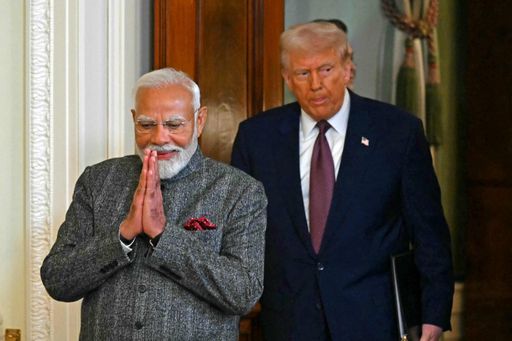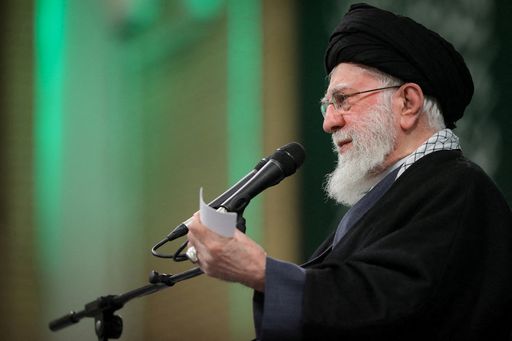Sport
Dollar
0,0000
%Euro
0,0000
%Gram Gold
0,0000
%Quarter Gold
0,0000
%Silver
0,0000
%Thousands of people continue to hold protests against the eviction, saying the Bengali-speaking Muslim residents in the state are being deliberately targeted.
The latest killing of a Muslim man by police fire during an eviction drive in India's Assam on Thursday has once again put the spotlight on the state's Chief Minister Himanta Biswa Sarma's controversial stance on the Muslim issue.
A former member of the Indian National Congress (INC), Sarma joined the ruling Hindu nationalist Bharatiya Janata Party (BJP) in 2015 and has been increasingly making news for his anti-Muslim views.
What's new here
The Assam police, working in tandem with the state forest department, carried out an eviction operation in the Paikan Reserve Forest area in Goalpara district to evict residents who they deemed as “illegal infiltrators” from Bangladesh.
The police action killed at least one person, a Muslim man, reported Maktoob Media. Another person was critically injured while dozens more were hurt. The injured, according to local media, were rushed to a hospital in Guwahati for treatment.
Tensions escalated when the residents, the majority of them Bengali-speaking Muslims, resisted their forced removal.
The official reasoning by the state authorities suggests that they want to clear 140 hectares of forest land. But this has inevitably led to the displacement of 1,080 families, mostly Muslims of Bengali origin.
The evicted residents say they had been living in the area long before the area was declared a reserved forest.
Recent actions and provocative statements of Sarma indicate that the removal of Bengali Muslims is part of a concerted effort to change the demography and gain sympathy of far-right Hindus.
Why is it significant
The latest eviction drive comes in the backdrop of another one last month, on June 16 to be precise, where homes belonging to at least 690 families, mostly Bengali Muslims, were demolished by the state authorities in Hasilabeel, a wetland near Goalpara town, using a similar pretext that the inhabitants were illegal.
Sarma, the state chief minister, posted to his X on Wednesday, saying: “EVICTIONS WILL CONTINUE, Safeguarding our forests and land rights of the indigenous people WILL CONTINUE, crackdown on illegal infiltrators WILL CONTINUE.”
The narrative of “illegal infiltrators” has long been questioned by critics, who say several Indian state governments have increasingly begun using the pretext for either eviction or downright demolition, citing land grab or illegal settlement, in what has since come to be known as “bulldozer justice”, targeting primarily the Muslim population.
Just last year, in February, Indian authorities knocked down a centuries-old mosque in New Delhi during a demolition drive to clear a “forest area” of illegal structures.
The irony, however, was that the mosque predated the creation of the Indian state and had long been standing on the grounds before any government diktat declaring the land a forest reserve.
Brief backgrounder
Sarma has had a political journey rife with accusations of being anti-Muslim.
He has repeatedly targeted Muslims in Assam, who are mostly of Bengali origin, accusing them of being “illegal infiltrators” from Bangladesh. “I will take sides. This is my ideology,” he said in August last year.
The claims, however, are disputed since the residents say they have been residing in Assam for generations.
Sarma's rhetoric, where he has at times blamed the Muslims for the inflated prices of vegetables and causing floods in the state, has led to various Assamese ethno-nationalist groups going door-to-door and threatening the Muslims.
Back in 2023, when former US President Barack Obama told CNN in an interview that he'd like then-President Joe Biden to bring up protection of Muslims in India during the latter's meeting with the Indian Prime Minister Narendra Modi, Sarma commented that there were many “Hussain Obamas” in the country and that his state's police would prioritise dealing with them.
His comments provoked a strong reaction from several Indian opposition figures, such as INC's Supriya Shrinate, who said Sarma's referring to the former US president as “Hussain Obama” was a clear insinuation “about President Obama being a Muslim and Indian Muslims need to be taught a lesson”.
Saket Gokhale, an MP for All India Trinamool Congress (TMC), equally slammed the Assam chief minister, saying Sarma issued “a veiled threat about using his state police force 'to take care of them (Muslims) in India'”.
Apoorvanand Jha, a professor at the University of Delhi and a columnist for The Wire, went as far as to say in one of his articles that the Assam chief minister's “hatred and violence towards Muslims is evident in his statements and his decisions” and that he has “lost the right to remain in his office”.
What happens next
Sarma says he is determined to carry forward the eviction drives.
“If anyone has a problem with the removal of 350 illegal Bangladeshis, they will have to bear it,” he said on July 8, implying that any opposition to the action would not deter him.
Thousands of people, mostly those evicted in Sarma's demolition drives, continue to hold protests against the eviction.
And the situation appears to be escalating.
At least five eviction drives across four Assam districts in the past month have displaced nearly 3,500 families, Scroll reported.
The recent evictions have drawn attention from leading opposition figures, such as INC leaders Mallikarjun Kharge and Rahul Gandhi, amidst fears that they could lead to protests and violence.
The Assam state has seen extended protests for a long time now, starting with anti-Citizenship (Amendment) Act 2019 demonstrations, and most recently in the wake of the Waqf (Amendment) Act, which seeks to undermine the authority of Muslim-run trusts.
Comments
No comments Yet




















Comment